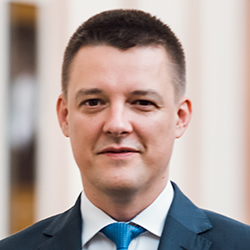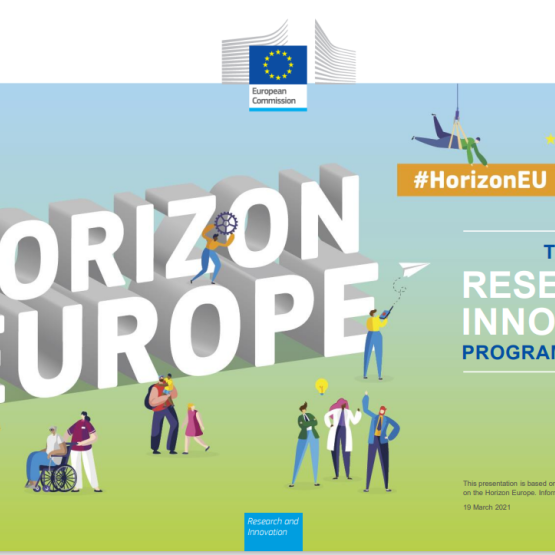AI Lab: Bridging technology and economic sciences through research and education

The AI Lab at the SGH Warsaw School of Economics serves as a crucial bridge between the cutting-edge technology on the one and economic, management and public policy sciences fostering interdisciplinary dialogue and research on the other hand. The AI Lab activities include training the SGH employees and organising conferences and seminars. We also conduct talks on a potential cooperation with external institutions.
An important aspect of the AI Lab activities involves training sessions, which garnered significant interest last semester. The introductory training, “Generative AI Tools in Academic Teaching (Basic Level)”, presented the specificity and diversity of generative AI services in the context of academic work. This training was conducted by doctoral candidate Sylwia Stefaniak. The next session focused on “Using Generative AI Tools in Writing Scientific Papers”. The subsequent training addressed “Recognising Content Created Using Generative AI”, which sparked discussions about how academic teachers should scrutinise students’ work to verify its originality. Additionally, participants discussed potential changes to theses requirements to ensure students get engaged in more independent work (such as conducting original research). These sessions were led by Professor Tymoteusz Doligalski, Vice-Director of the AI Lab. The final training in this series covered “Creating Graphics Using Generative AI” and was presented by practitioner Glib Skrypka, who teaches similar subjects at the SGH postgraduate studies. It is worth noting that recordings of these training sessions are available to university staff on the RID website. New training sessions are planned for the near future.
The conference AI Spring: How to Research Artificial Intelligence in Economic Sciences? brought together various experts who shared their experiences and insights on researching artificial intelligence in the context of social and economic sciences. Among the speakers were Professor Anna Morgan-Thomas from the University of Glasgow, Doctor Ryszard Ćwiertniak from the Krakow University of Economics, Doctor Leszek Bukowski and Doctor Andrzej Klimczuk from the SGH. The discussion highlighted several key themes, including the role of AI as a “supporting actor” in research, with studies often focusing on relationships between AI and organisations, people or the economy. Professor Morgan-Thomas asked a question how to make AI a primary actor in research, while Doctor Ćwiertniak emphasised that AI should remain a supporting tool where users are crucial. Doctor Klimczuk pointed out that legal and economic institutions struggle to keep pace with rapid technological changes. Doctor Bukowski mentioned that computer scientists are increasingly asking philosophical questions, such as whether large language models truly understand the meaning of words. Such questions about the meaning of language and the relationship between language and the world, previously the domain of philosophy, are now being approached experimentally.
In the subsequent part of the conference, there were twenty papers with a management and social focus presented, alongside sixteen papers examining AI applications from analytical and quantitative perspectives. Additionally, students delivered six papers. As organisers, we were surprised by the interdisciplinary approaches to the AI research. The presentations covered a broad spectrum of topics, ranging from purely social issues (AI and seniors) through numerous management and economic themes to typically technical subjects (evaluation of LLM fine-tuning methods). This diversity demonstrated the multifaceted nature of AI research and highlighted the importance of cross-disciplinary collaboration in advancing our understanding of artificial intelligence in economic sciences.
The conference Digital Platforms organised by the AI Lab SGH in collaboration with DELab UW, took place in December 2024, featuring a diverse programme exploring the economics and management aspects of digital platforms. The event opened with a panel debate on researching digital platforms in economic sciences, followed by parallel sessions covering business models, marketing approaches, industry applications, and financial perspectives. The session entitled Big Tech, Big Trouble? generated the most interest among participants, addressing critical issues such as regulatory challenges for tech giants, legal regulations affecting gatekeeping platforms, self-preferencing as a form of market dominance abuse, and compliance analysis of e-commerce platforms with competition and consumer protection laws. The conference concluded with sessions on AI and Metaverse applications, highlighting the transformative potential of these technologies in reshaping digital ecosystems. It is worth emphasising that both conferences were organised via MS Teams without fees and were open to everyone. We have also published the monograph on digital platforms. The monograph entitled Platformy cyfrowe. Model biznesu, zastosowania, użytkownicy contains more than twenty chapters written by various researchers. The book is available as a PDF file for free download.
Another field of activity of the AI Lab is the SGcHat podcast series, in which we speak with representatives of the university, like Professors Tomasz Szapiro and Paweł Prałat, or collaborating companies, like Google, PwC and Accenture, about topics at the intersection of economics and technology. In a podcast entitled Big Tech Companies That Are Now With Us, Professor Michał Goliński discussed the impact of Big Tech on our lives and how these companies have become ubiquitous and an inseparable part of our daily existence. He also addressed the topic of Big Tech’s power over the world, its influence on politics and society, and issues of privacy and digital dementia. In another podcast called Consumer Trends in an Analogue-Digital Crucible Professor Bogdan Mróz presented his original 6E concept. Specifically, he explained how social media behaviours are characterised by the following dimensions: expression, extraversion, exhibitionism, escapism, ephemerality, and eccentricity.
Together with Google, the AI Lab team prepared the Skills of Tomorrow AI programme. This is a 5-week intensive course for Small and Medium Companies on business applications of artificial intelligence tools. The course was organised in the period from January to February 2025 and involved 20,000 AI pioneers. There is a plan to organise next editions of programmes targeted at Polish citizens in the coming months. More information about this programme can be found in a separate article in this issue of the SGH Magazine.
An important activity of the centre is cooperation with industry partners. Currently, the centre has agreements regarding joint activities with the PZU group and the PKO BP group. In both cases the objective is to leverage the expert knowledge of the SGH Warsaw School of Economics professors in the area of AI and advanced data analytics applied to practical business problems. Importantly, we want to involve our University students in these activities and give them an opportunity to develop their professional skills.
Within the AI Lab unit at SGH, there is a Student Data Science Club, which is an organisation for students who are enthusiastic about data analysis and the exploration of new technologies and tools. As part of its activities, the organisation offers its members opportunities to participate in courses and training programmes in data processing and analysis. In addition to making them acquire practical skills and keeping them up-dated with the latest technologies, it also organises meetings with industry experts. During the winter semester of 2024, the organisation hosted representatives from Procter & Gamble and Accenture Poland, who shared their insights on automating data analytics in the cloud and implementing Generative Artificial Intelligence (GenAI) in the financial sector. Participants gained valuable knowledge on best DevOps practices, data quality challenges, and key aspects of AI implementation in banking.
Beyond enhancing their skills, members of the organisation actively contribute to organising various events. In November 2024, the club co-organised the ML in PL Conference at the Copernicus Science Centre in Warsaw and served as a knowledge partner for the 10th edition of BEST Hacking League – one of the largest student hackathons at the Warsaw University of Technology. The club does not only help organise such events but also actively participates in them. Its members regularly compete in hackathons and analytics competitions, applying their knowledge in practice and tackling real-world industry challenges. In addition, it continues to expand its activities, providing students with a platform for learning and networking with industry professionals. In 2025, the organisation will further develop its initiatives, including the publication of the next edition of the Data-Driven Magazine, training programmes in advanced data analytics, the organisation of our own hackathon and additional meetings with business leaders.
The members of AI Lab concentrate on preparation of policy papers in the scope of application of artificial intelligence. We worked together with Global Partnership for Artificial Intelligence (https://gpai.ai/) preparing recommendations regarding the best practices of development of AI solutions. The results are summarised in the Constructive Approach to Smart Technologies report (https://gpai.ai/projects/future-of-work/FoW3_CAST.pdf). We have also developed Index of Digital Transformation: measuring the digital maturity of companies listed on the Warsaw Stock Exchange (https://ps.stat.gov.pl/Article/2024/2/001-019). Currently, we are working on a comprehensive review of the adoption of digital technologies, in the sectors of SMEs and large companies, with a special focus on AI. These results will be communicated during the Economic Forum held in Karpacz in 2025.
If you would like to follow updates about activity of our laboratory, you can find them on our website https://www.sgh.waw.pl/ai-lab and subscribe to our page on LinkedIn https://www.linkedin.com/company/92518858/admin/dashboard/.

Habilitated Doctor TYMOTEUSZ DOLIGALSKI, Professor at SGH, Deputy director of AI Lab – Intercollegiate Centre for Artificial Intelligence and Digital Platforms, Head of e-Business Unit, Collegium of Economic Analysis, SGH

Professor BOGUMIŁ KAMIŃSKI, Director at AI Lab – Intercollegiate Centre for Artificial Intelligence and Digital Platforms, Head of Decision Analysis and Support Unit, Collegium of Economic Analysis, SGH



